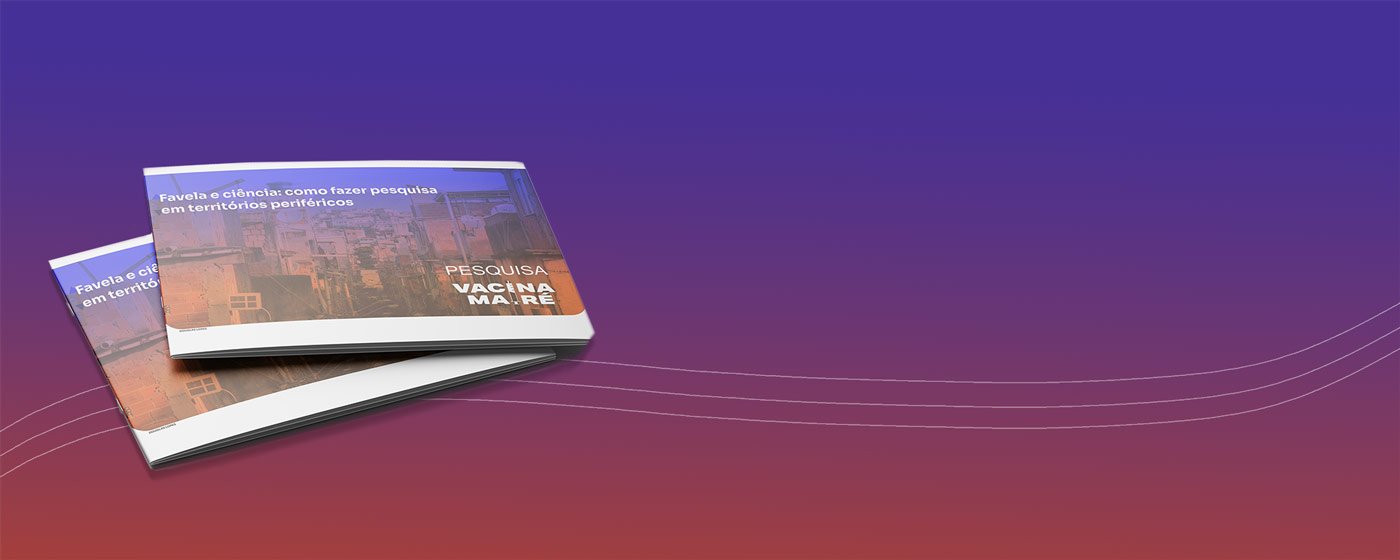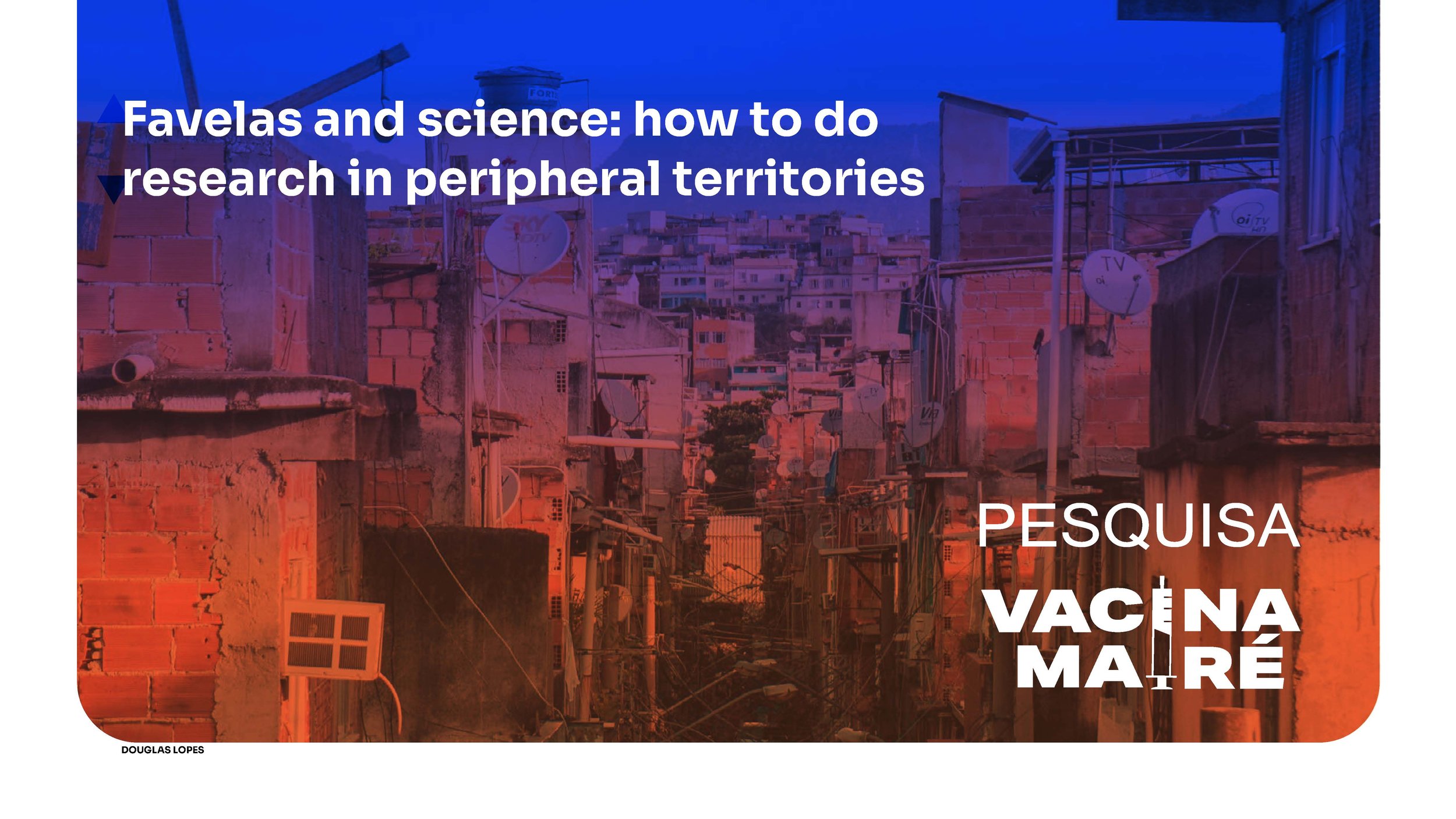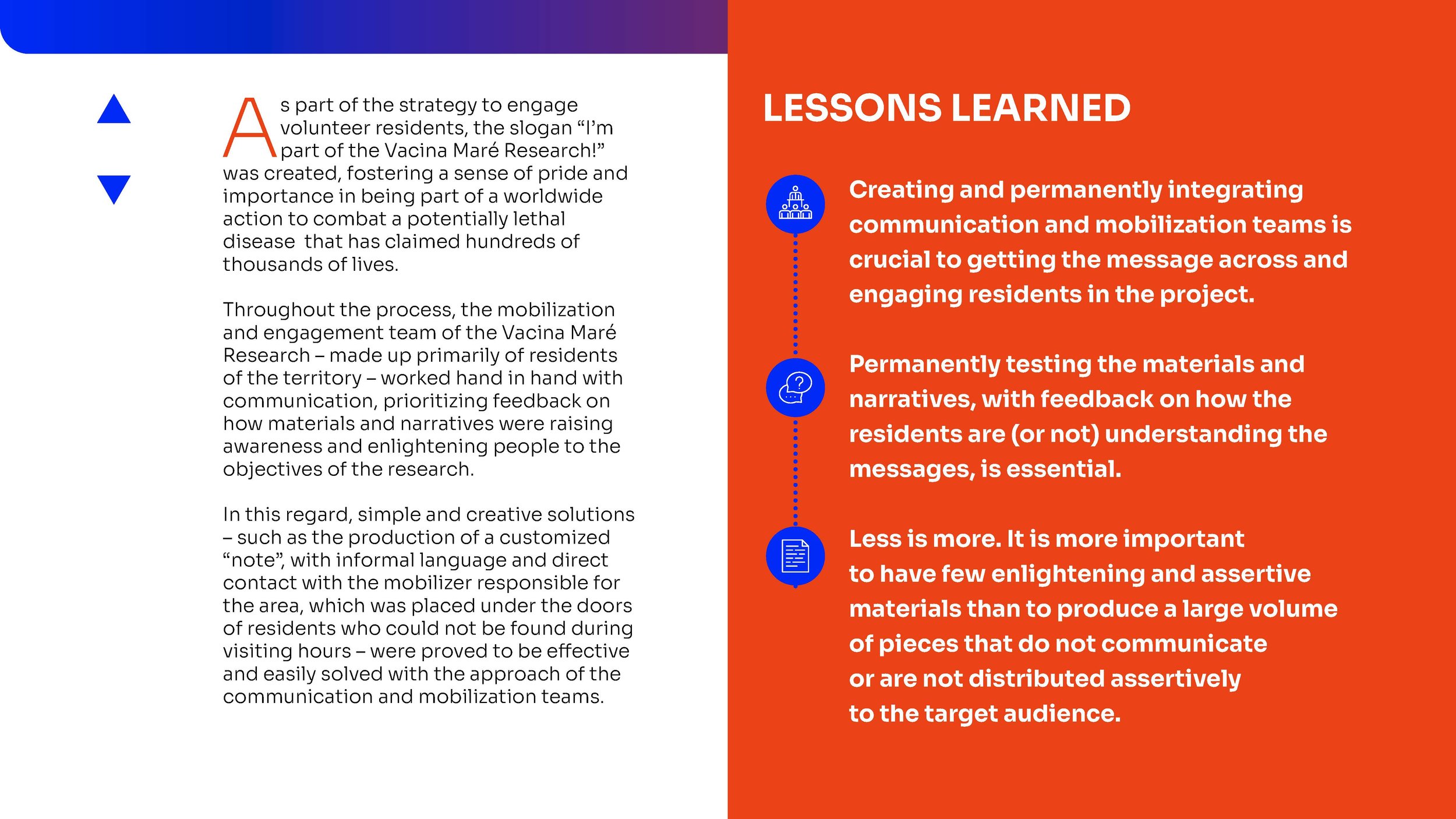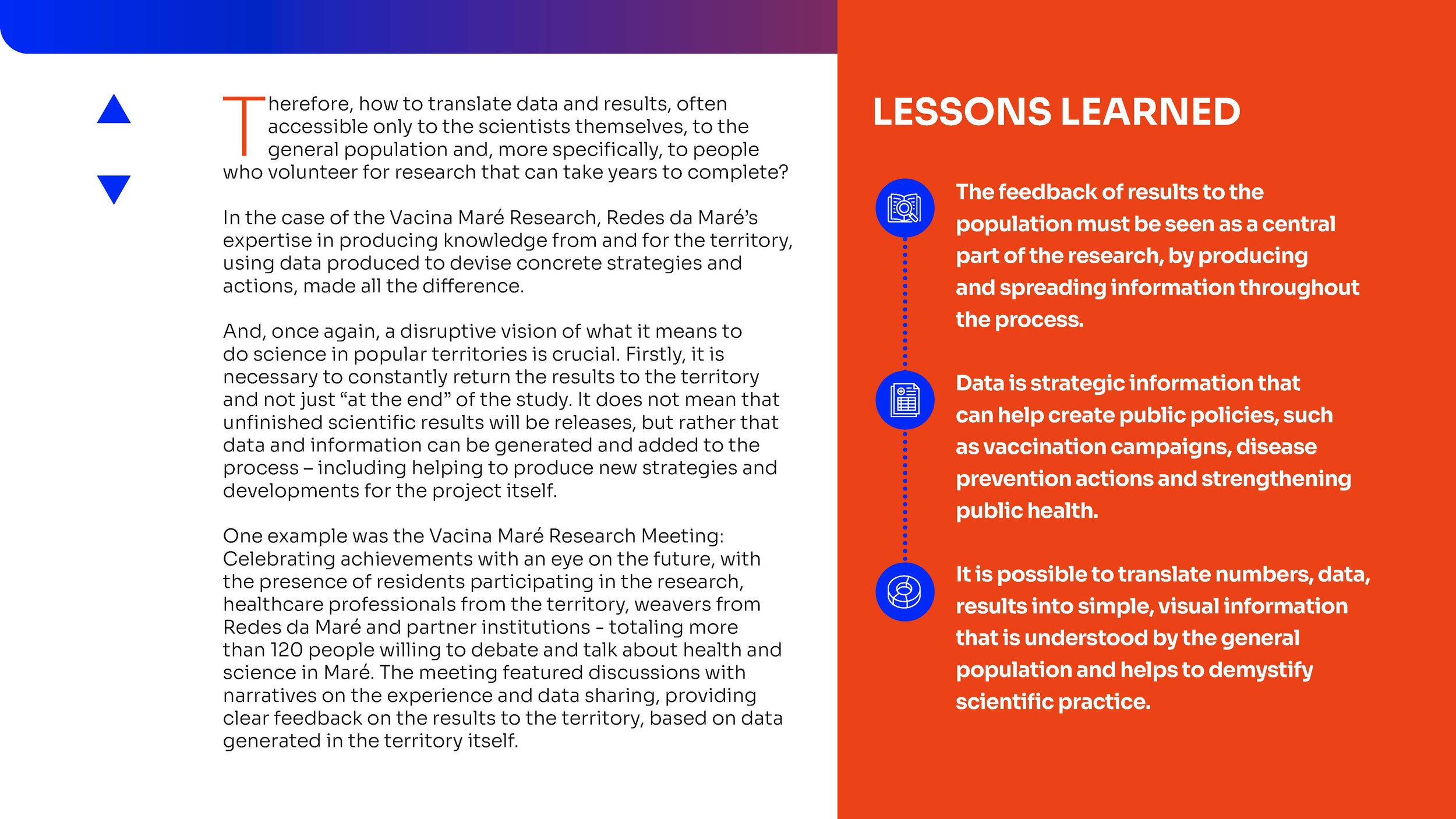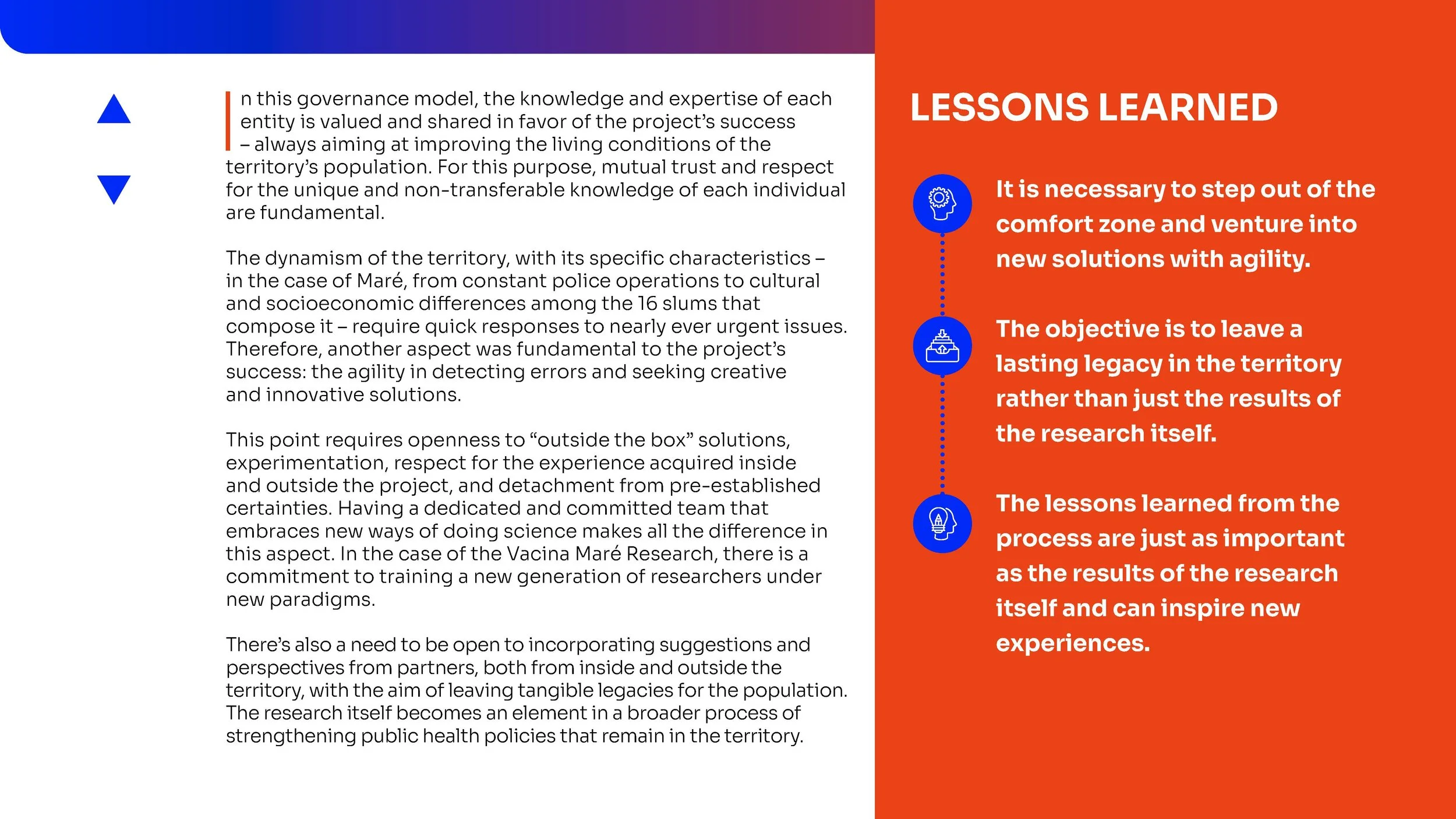
The aim of this material is to share tools, insights, and practical tips about the experience of implementing Vacina Maré Research in the 16 favelas constituting the territory of Maré.

It is urgent to change paradigms and not only do science for the population but, above all, do science with the population.
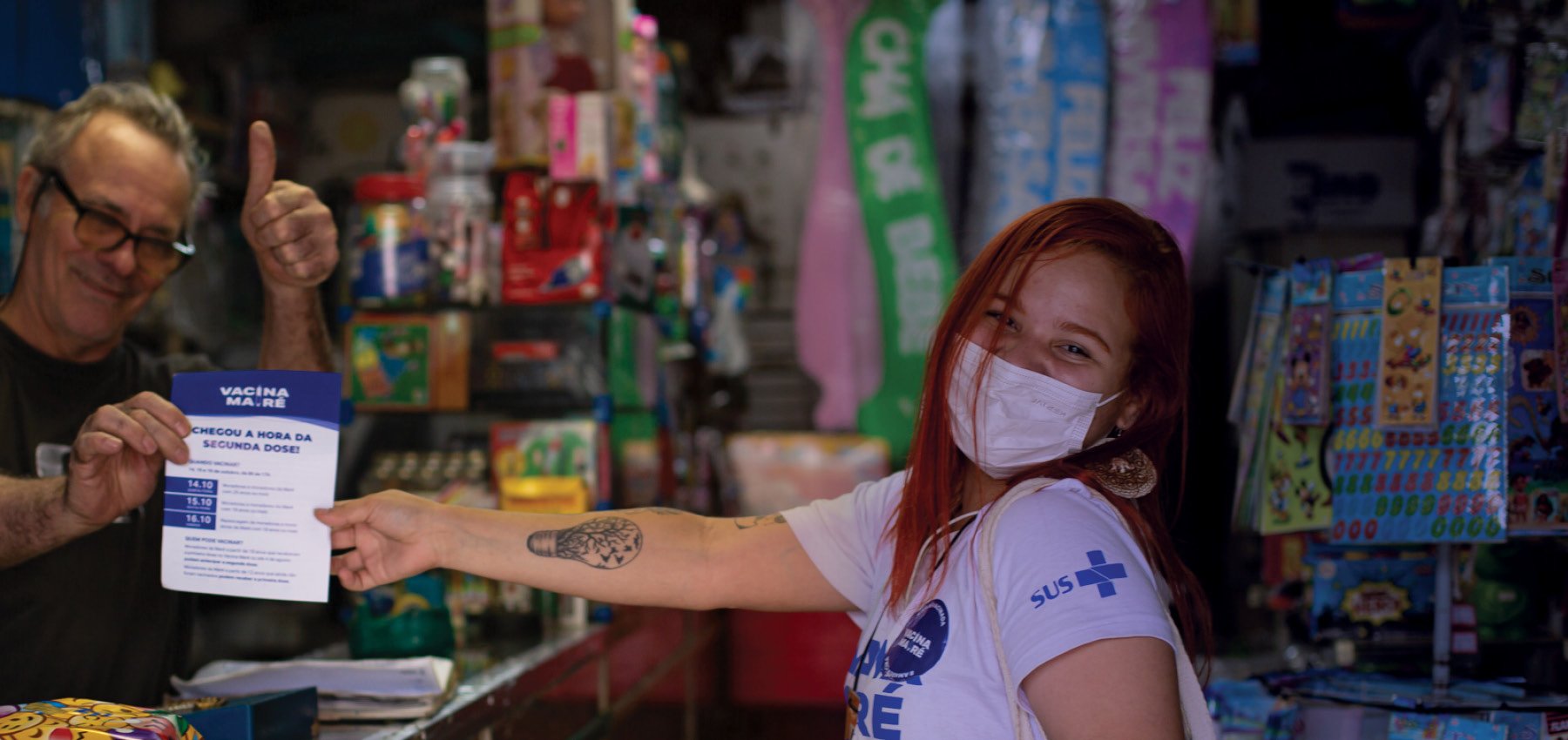
Building Relationships
of Trust and Credibility
Engaging residents and doing science in a territory requires the sometimes slow and challenging task of building trust and credibility. Gone are the days when researchers arrived in communities, gather the material needed for their research and returned to their laboratories, solely focused on their scientific achievements, without actively listening to people.
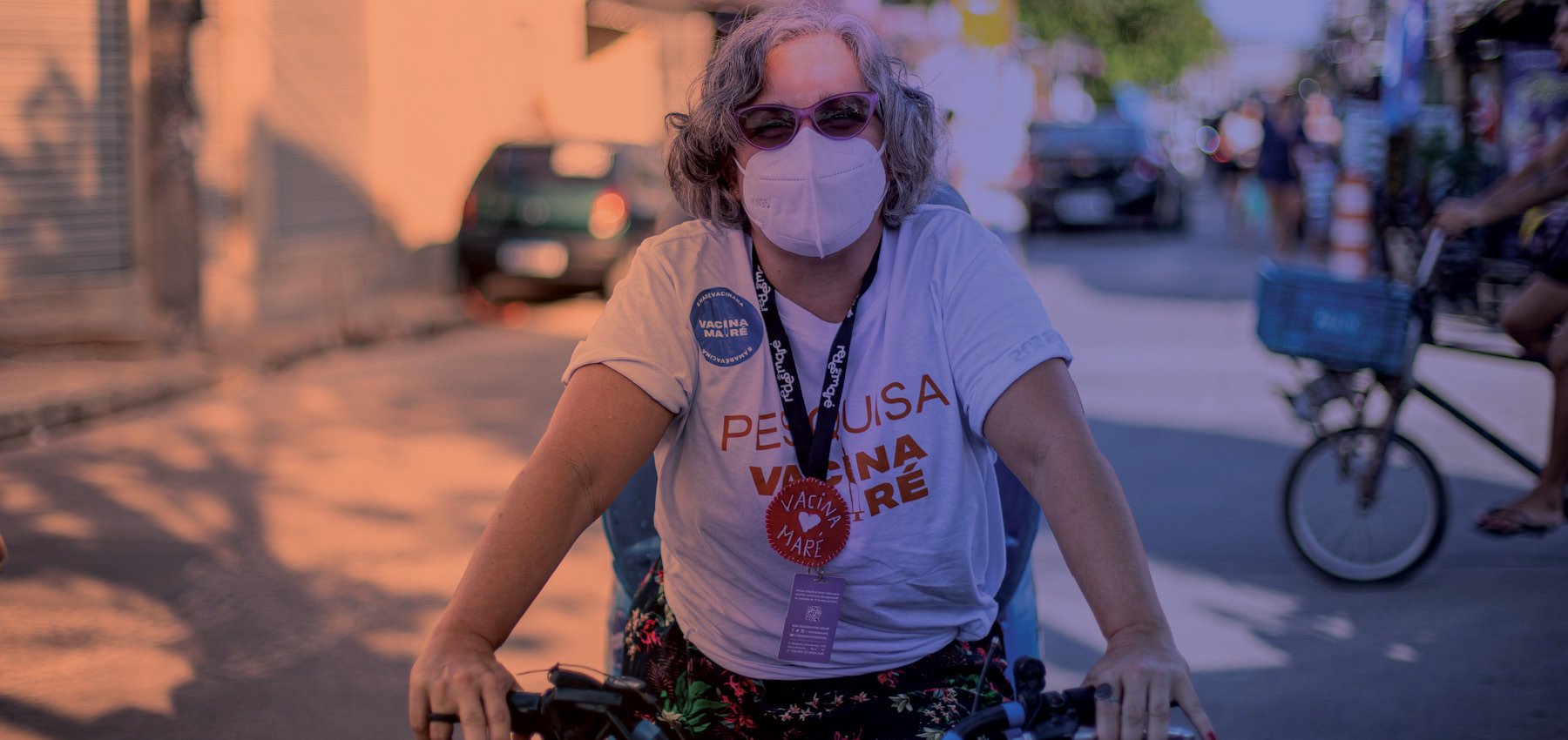
Arrival in the Territory: How
Will I Be Seen and Recognized?
Having established clear objectives and relevant partnerships, the time has come to communicate what is being done. The first step is to adopt an easy-to-understand name that resonates with the territory and the subject of the research.
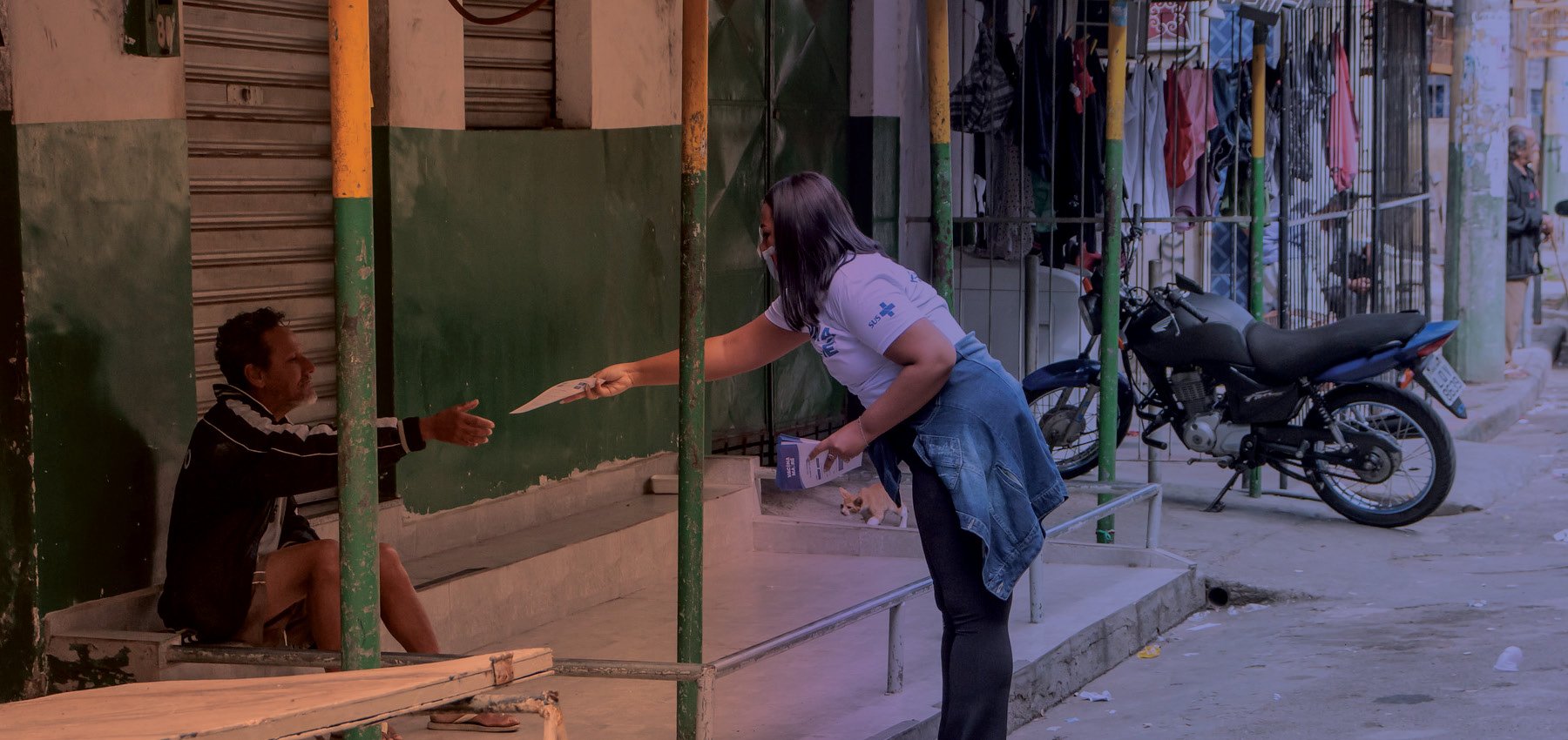
Mobilization and engagement:
The Residents at the Center of the Project
In all materials produced, the resident was placed at the center of the research, highlighting that their participation is essential for the realization and success of the project – “Without residents, there is no research”.
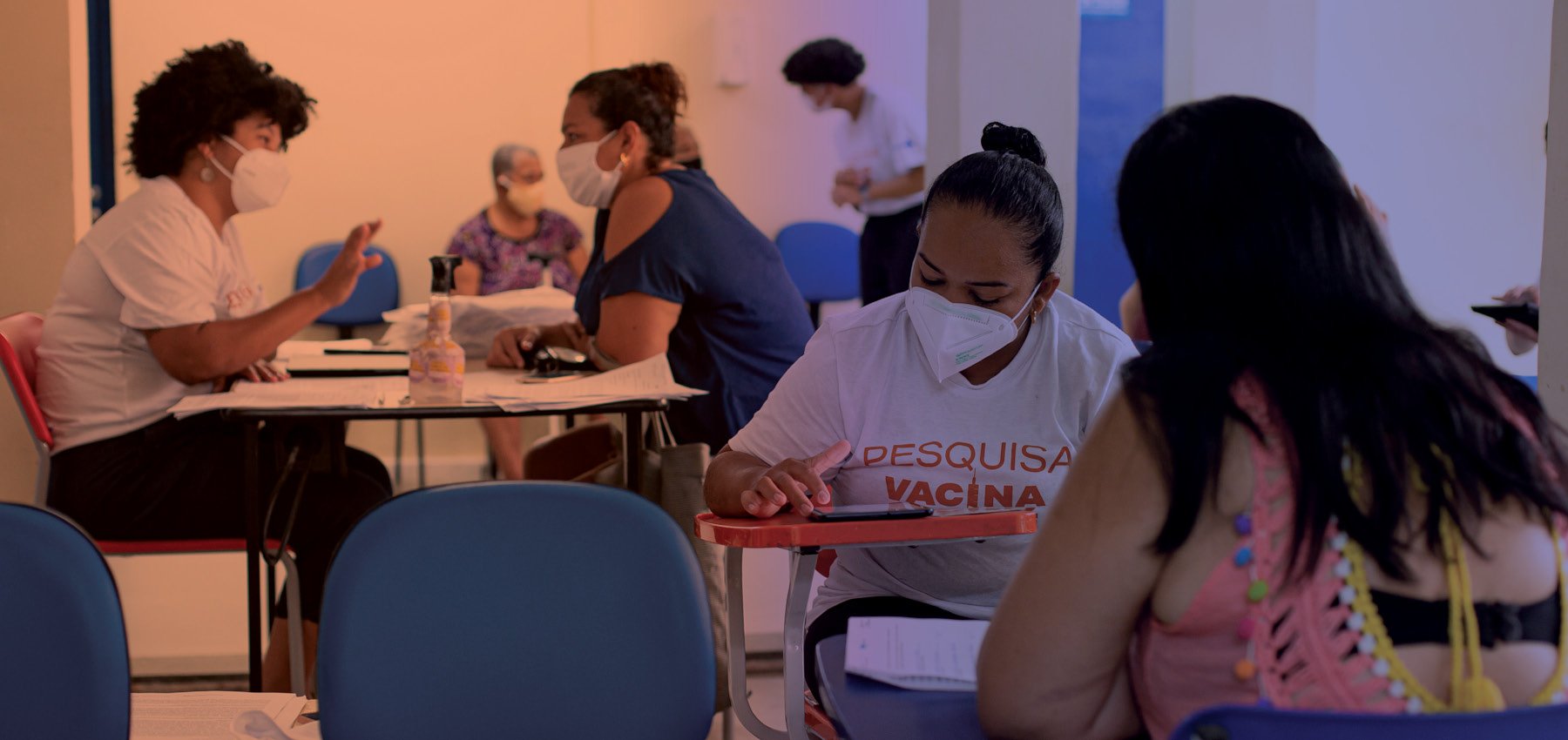
How to Perform Scientific
Communication in Favelas?
This is, perhaps, one of the greatest challenges of the project. Once the residents have been sensitized and engaged about the importance of the research, they need to receive feedback on their participation involvement and understand what impact their contribution has made.
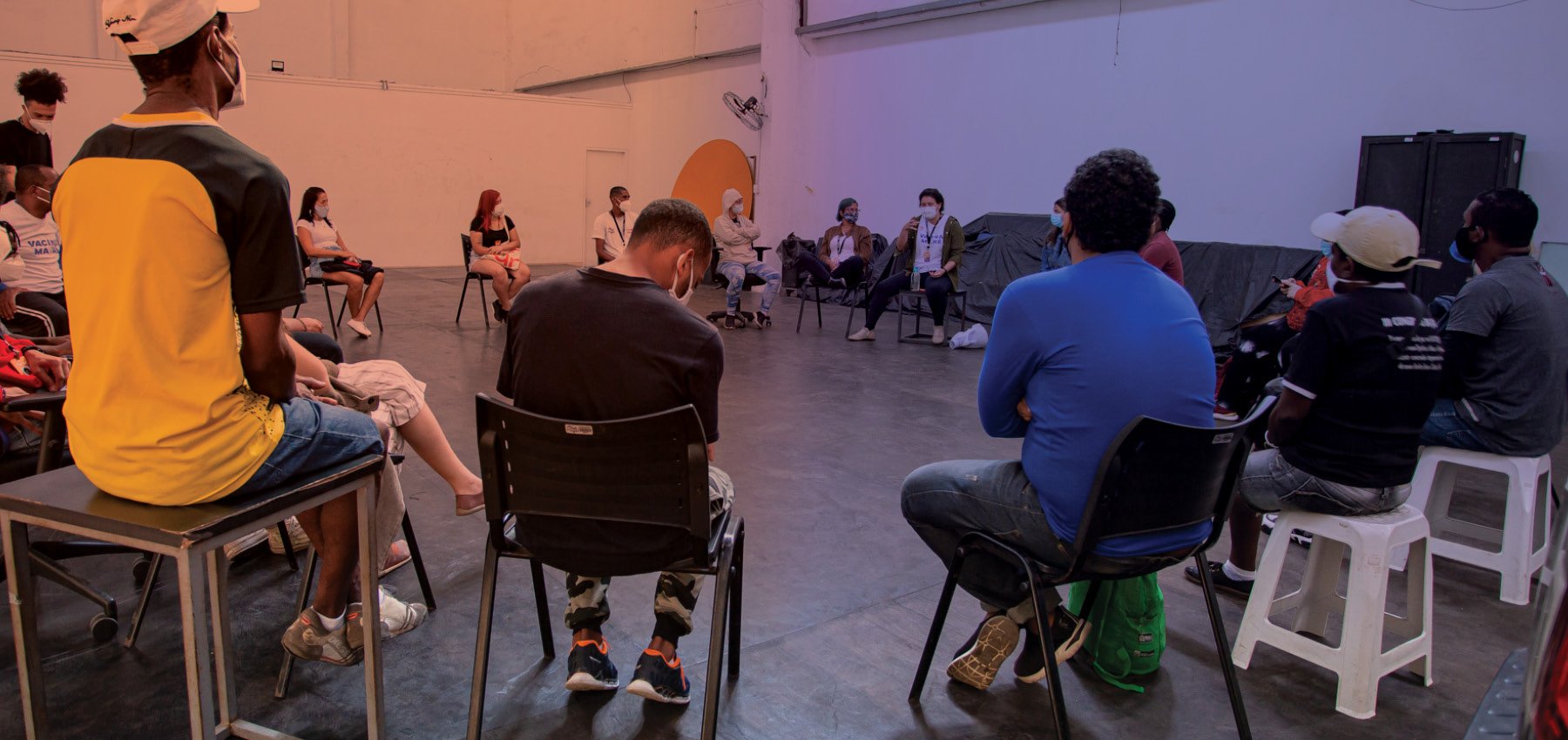
Shared Governance:
Nobody Does It Alone
Sharing the leadership of the project, with its mistakes, successes, challenges, and virtues, on an equal footing between partners and recognizing existing knowledge and leadership in the territory, was undoubtedly one of the greatest innovations of the Vacina Maré Research.
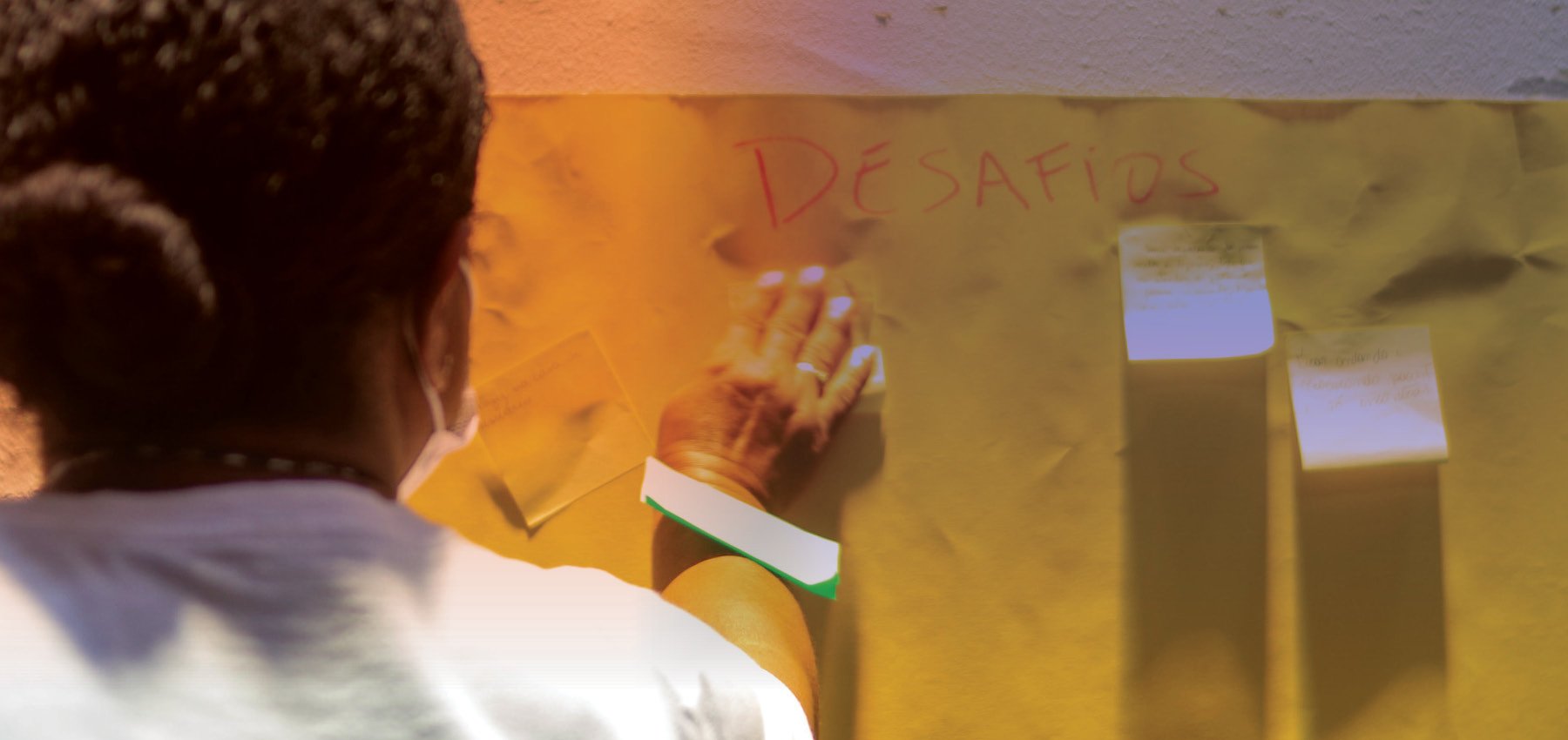
Setbacks are Part of the
Process and are Important
Doing scientific research demands dedication, time, and resources. Doing science in favela and peripheries demands more than this: it demands resilience, openness to new learning and pattern breaking, and agility to deal with real-life setbacks and challenges.

Lessons learned
-

Understanding how the residents live and do things is the first step. Active listening is paramount.
-

Establishment of local partnerships with organizations rooted in the territory.
-

Availability for dialogue and openness to unusual solutions.
-

Communication is strategic and should be at the heart of the project’s decisions and action plans from the outset.
-

Creating a simple and impactful brand is essential for the project to be recognized in the territory.
-

It is important to assess which communication channels work for each case: brochures, sound trucks, videos, social networks, websites, community vehicles and even megaphones can be used.
-

Gifts for volunteers are items that support engagement and assist articulators in the process of engaging residents.
-

Creating and continuously integrating communication and mobilization teams is crucial to get the message across and engage residents in the project.
-

Continuously testing the materials and narratives, with feedback on how the residents are (or not) understanding the messages, is essential.
-

Less is more. It is more important to have few enlightening and assertive materials than to produce a large volume of pieces that do not communicate or are not distributed assertively to the target audience.
-

The feedback of results to the population must be seen as a central part of the research, by producing and spreading information throughout the process.
-

Data are strategic information that can help create public policies, such as vaccination campaigns, disease prevention actions and strength public health.
-

It is possible to translate numbers, data, and results into simple, visual information that is understood by the general population and helps to demystify scientific practice.
-

It is necessary to step out of the comfort zone and venture into new solutions with agility.
-

The objective is to leave a lasting legacy in the territory rather than just the results of the research itself.
-

The lessons learned from the process are just as important as the results of the research itself and can inspire new experiences.
-

Challenges are heightened when doing science in a real territory, especially in favelas and peripheries.
-

It is necessary to incorporate, from the beginning of the project, specific resources for communication, mobilization, and engagement.
-

There are no ready-made formulas. Each territory is unique and requires creative and innovative solutions for the emerging problems.
